 W
WRoland Gérard Barthes was a French literary theorist, essayist, philosopher, critic, and semiotician. Barthes's ideas explored a diverse range of fields and he influenced the development of many schools of theory, including structuralism, semiotics, social theory, design theory, anthropology, and post-structuralism. He was particularly known for developing and extending the field of semiotics through the analysis of a variety of sign systems, mainly derived from Western popular culture.
 W
WBahrām Beyzāie is a critically and popularly acclaimed filmmaker, playwright, theatre director, screenwriter, film editor, and ostād ("master") of Persian letters, arts and Iranian studies.
 W
WJacob Bryant (1715–1804) was an English scholar and mythographer, who has been described as "the outstanding figure among the mythagogues who flourished in the late eighteenth and early nineteenth centuries."
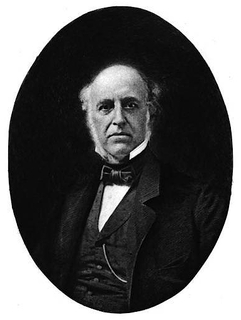 W
WThomas Bulfinch was an American writer born in Newton, Massachusetts, best known for the book Bulfinch's Mythology.
 W
WFedor Ivanovich Buslaev was a Russian Empire philologist, art historian, and folklorist who represented the Mythological school of comparative literature and linguistics. He was profoundly influenced by Jacob Grimm and Theodor Benfey.
 W
WVincenzo Cartari was a mythographer, secretary, and diplomat of the Italian Renaissance, studied by Jean Seznec and scholars of the Warburg Institute.
 W
WDaniel Clasen, in Latin Danielis Clasenius or Clasenus, was a German political theorist, religious scholar, and classicist.
 W
WNatale Conti or Latin Natalis Comes, also Natalis de Comitibus and French Noël le Comte (1520–1582) was an Italian mythographer, poet, humanist and historian. His major work Mythologiae, ten books written in Latin, was first published in Venice in 1567 and became a standard source for classical mythology in later Renaissance Europe. It was reprinted in numerous editions; after 1583, these were appended with a treatise on the Muses by Geoffroi Linocier. By the end of the 17th century, his name was virtually synonymous with mythology: a French dictionary in defining the term mythologie noted that it was the subject written about by Natalis Comes.
 W
WErich Anton Paul von Däniken is a Swiss author of several books which make claims about extraterrestrial influences on early human culture, including the best-selling Chariots of the Gods?, published in 1968. Von Däniken is one of the main figures responsible for popularizing the "paleo-contact" and ancient astronauts hypotheses.
 W
WMircea Eliade was a Romanian historian of religion, fiction writer, philosopher, and professor at the University of Chicago. He was a leading interpreter of religious experience, who established paradigms in religious studies that persist to this day. His theory that hierophanies form the basis of religion, splitting the human experience of reality into sacred and profane space and time, has proved influential. One of his most instrumental contributions to religious studies was his theory of eternal return, which holds that myths and rituals do not simply commemorate hierophanies, but, at least to the minds of the religious, actually participate in them.
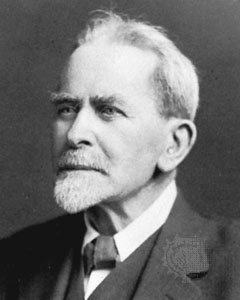 W
WSir James George Frazer was a Scottish social anthropologist and folklorist influential in the early stages of the modern studies of mythology and comparative religion. His most famous work, The Golden Bough (1890), documents and details the similarities among magical and religious beliefs around the world. Frazer posited that human belief progressed through three stages: primitive magic, replaced by religion, in turn replaced by science.
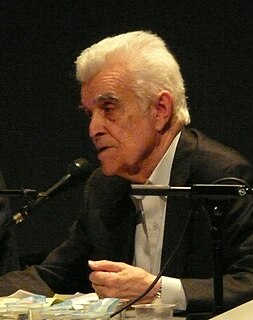 W
WRené Noël Théophile Girard was a French historian, literary critic, and philosopher of social science whose work belongs to the tradition of anthropological philosophy. Girard was the author of nearly thirty books, with his writings spanning many academic domains. Although the reception of his work is different in each of these areas, there is a growing body of secondary literature on his work and his influence on disciplines such as literary criticism, critical theory, anthropology, theology, psychology, mythology, sociology, economics, cultural studies, and philosophy.
 W
WJacob Ludwig Karl Grimm, also known as Ludwig Karl, was a German philologist, jurist, and folklorist. He is known as the discoverer of Grimm's law of linguistics, the co-author of the monumental Deutsches Wörterbuch, the author of Deutsche Mythologie, and the editor of Grimm's Fairy Tales. He was the older brother of Wilhelm Grimm, of the literary duo the Brothers Grimm.
 W
WAnton Gerard van Hamel was a Dutch scholar, best known for his contributions to Celtic and Germanic studies, especially those relating to literature, linguistics, philology and mythology. He is not to be confused with his uncle, Anton Gerard van Hamel, who was a theologian, professor of French and editor of De Gids.
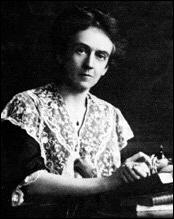 W
WEdith Hamilton was an American educator and internationally known author who was one of the most renowned classicists of her era in the United States. A graduate of Bryn Mawr College, she also studied in Germany at the University of Leipzig and the University of Munich. Hamilton began her career as an educator and head of the Bryn Mawr School, a private college preparatory school for girls in Baltimore, Maryland; however, Hamilton is best known for her essays and best-selling books on ancient Greek and Roman civilizations.
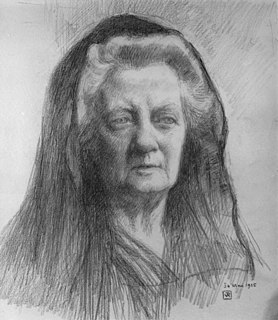 W
WJane Ellen Harrison was a British classical scholar and linguist. Harrison is one of the founders, with Karl Kerenyi and Walter Burkert, of modern studies in Ancient Greek religion and mythology. She applied 19th-century archaeological discoveries to the interpretation of ancient Greek religion in ways that have become standard. She has also been credited with being the first woman to obtain a post in England as a ‘career academic’. Harrison argued for women's suffrage but thought she would never want to vote herself. Ellen Wordsworth Crofts, later second wife of Sir Francis Darwin, was Jane Harrison's best friend from her student days at Newnham, and during the period from 1898 to her death in 1928.
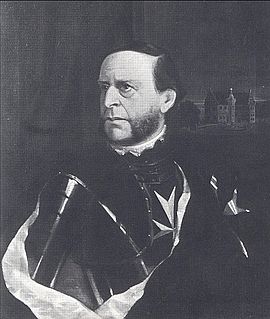 W
WAugust Franz Ludwig Maria, Baron von Haxthausen-Abbenburg was a German agricultural scientist, economist, lawyer, writer, and collector of folk songs, best known for his account of conditions in Russia as revealed by his 1843 visit.
 W
WClaude Lévi-Strauss was a French anthropologist and ethnologist, born in Belgium to French-Jewish parents living in Brussels, whose work was key in the development of the theory of structuralism and structural anthropology. He held the chair of Social Anthropology at the Collège de France between 1959 and 1982, was elected a member of the Académie française in 1973 and was a member of the School for Advanced Studies in the Social Sciences in Paris. He received numerous honors from universities and institutions throughout the world and has been called, alongside James George Frazer and Franz Boas, the "father of modern anthropology".
 W
WJosé Manuel Losada is a professor and literary theorist with a specialization in the fields of myth criticism and comparative literature. Within these fields he has published several books in Spanish, French and English.
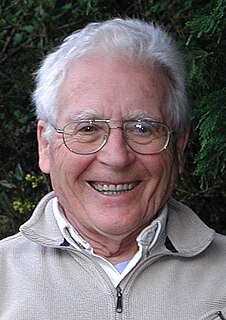 W
WJames Ephraim Lovelock, is an English independent scientist, environmentalist and futurist. He is best known for proposing the Gaia hypothesis, which postulates that the Earth functions as a self-regulating system.
 W
WDean Arthur Miller was an American historian who was Professor of History at the University of Rochester. He specialized in the classics, Celtic studies and Indo-European studies, with a particular focus on Heroic poetry.
 W
WKarl Otfried Müller was a German scholar and Philodorian, or admirer of ancient Sparta, who introduced the modern study of Greek mythology.
 W
WAndrei Oișteanu is a Romanian historian of religions and mentalities, ethnologist, cultural anthropologist, literary critic and novelist. Specialized in the history of religions and mentalities, he is also noted for his investigation of rituals and magic and his work in Jewish studies and the history of antisemitism. After the Romanian Revolution of 1989, he also became noted for his articles and essays on the Holocaust in Romania.
 W
WDevdutt Pattanaik is an Indian mythologist, speaker, illustrator and author, known for his writing on sacred lore, legends, folklore, fables and parables. His work focuses largely on the areas of myth, religion, mythology, and management.
 W
WSnorri Sturluson was an Icelandic historian, poet, and politician. He was elected twice as lawspeaker to the Icelandic parliament, the Althing. He was the author of the Prose Edda or Younger Edda, which consists of Gylfaginning, a narrative of Norse mythology, the Skáldskaparmál, a book of poetic language, and the Háttatal, a list of verse forms. He was also the author of the Heimskringla, a history of the Norwegian kings that begins with legendary material in Ynglinga saga and moves through to early medieval Scandinavian history. For stylistic and methodological reasons, Snorri is often taken to be the author of Egil's saga. He was assassinated in 1241 by men claiming to be agents of the King of Norway.
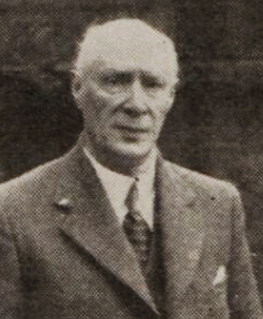 W
WJames Lewis Thomas Chalmers Spence was a Scottish journalist, poet, author, folklorist and occult scholar. Spence was a Fellow of the Royal Anthropological Institute of Great Britain and Ireland, and Vice-President of the Scottish Anthropological and Folklore Society. He founded the Scottish National Movement.
 W
WJust Mathias Thiele was a Danish scholar and librarian. A central personage during the Danish Golden Age, he contributed to Danish cultural life in a number of capacities. He collected and published Danish folk tales with inspiration from the Brothers Grimm and founded the Royal Print Collection, today part of the Danish National Gallery. After the death of Bertel Thorvaldsen, he saved his archives and other papers and based on them he wrote his first biography.
 W
WWilliam Irwin Thompson was an American social philosopher, cultural critic, and poet. He received the Oslo International Poetry Festival Award in 1986. He described his writing and speaking style as "mind-jazz on ancient texts". He was the founder of the Lindisfarne Association.
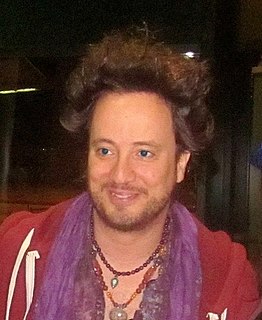 W
WGiorgio A. Tsoukalos is a Swiss-born writer, ufologist, television presenter and producer. He is a proponent of the pseudoarchaeological theory that ancient alien astronauts interacted with ancient humans. He is known for his appearances on the television series Ancient Aliens.
 W
WImmanuel Velikovsky was a Russian, Israeli, and American scholar. He is the author of several books offering novel interpretations of ancient history, including the U.S. bestseller Worlds in Collision published in 1950. Earlier, he had played a role in the founding of the Hebrew University of Jerusalem in Israel, and was a psychiatrist and psychoanalyst. Velikovsky's work is frequently cited as a canonical example of pseudoscience and has been used as an example of the demarcation problem.
 W
WVicente Ferreira da Silva was a Brazilian logician, mathematician, and philosopher. He was one of first men in Brazil history to write and have published an academic book in logic.
 W
WJan Pieter Marie Laurens de Vries was a Dutch philologist, linguist, religious studies scholar, folklorist, educator, writer, editor and public official who specialized in Germanic studies.
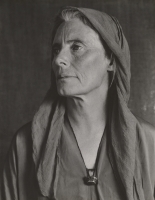 W
WElla Young was an Irish poet and Celtic mythologist active in the Gaelic and Celtic Revival literary movement of the late 19th and early 20th century. Born in Ireland, Young was an author of poetry and children's books. She emigrated from Ireland to the United States in 1925 as a temporary visitor and lived in California. For five years she gave speaking tours on Celtic mythology at American universities, and in 1931 she was involved in a publicized immigration controversy when she attempted to become a citizen.
 W
WJonathan Young is a psychologist who became the founding curator of the Joseph Campbell Archives.